Good Government
-
The Fading Traces of Good Governance
- By solomon2day
- On 13/08/2025
- In Update with Solomon

 In 1975, the reign of terror was directed and supervised by the Ministry of Interior, where a comprehensive list of action was domiciled in Montevideo.
In 1975, the reign of terror was directed and supervised by the Ministry of Interior, where a comprehensive list of action was domiciled in Montevideo.However, events later showed that what befell the helpless citizenry had little or no direction or supervision.
Masterminded kidnappings, torture and elimination were the trend, with government Ministries, Departments and Agencies(MDA) becoming active while those saddled with the responsibility of protecting lives and property were always available to carry out the unimaginable.
The separate arms of the state competed for the dubious glory of apprehending more subversives and creating a system of sponsored mayhem.
As crime and criminality became the culture, unfortunate relatives of victims met a stone wall at the law enforcement and government offices.
Green Ford Falcon cars became a symbol with different interpretations, while the unexplainable continued unabated.
Indeed, the deliberate absence of streetlights in most communities across Nigeria encouraged crime and criminality, even as traders, artisans, barbers, craftspeople, market men and women were co-opted to do the unthinkable.
The wholesale disappearance of people from all walks of life sent the wrong signals to all and sundry, with the general belief that the same had erased any trace of good governance.
Lawlessness and impunity are now the order of the day everywhere in Nigeria as anarchy gradually creeps into prominence. Threats, blackmail, harassment, intimidation and attacks are all tools used to achieve sinister motives in this climate, while fraudsters now play a prominent role in government and governance. Community leaders, Homeowners and Tenants Associations and criminally minded residents also play prominent roles in crime. For instance, a vulcanizer and a woman in her mid-thirties, who sell second-hand clothing located at a make-shift shed beside the gate of the Nigeria Baptist Convention quarters along the Scout Camp road, opposite the neighborhood market in Ibadan, Oyo state, Nigeria, are among several traders who perpetrate acts of criminality on a daily basis with impunity, with the knowledge of law enforcement agents.
Indeed, a sizable number of shop owners in residential areas such as Molusi, Olorunsogo, Molete, Felele and several other communities across the country are now involved in grievous crimes in these communities, with the full support of government appointees, elected officials, public and civil servants.
The motive which goes beyond the surface appearance is woven around property matters.
Already, the future of most children and young people is now a subject of debate, as crime and criminality systematically overwhelm their consciousness and existence.
Teachers and schools have since abandoned their responsibilities of imparting knowledge for obvious reasons, as the country moves farther and farther from good governance.
Indeed, those who are supposed to protect lives and property are now facilitating all forms of crime, while those in leadership positions look on with delight.
-
The government's poor performance has turned Nigerians into beggars—former LG legislative assembly speaker
- By solomon2day
- On 03/06/2025
- In News
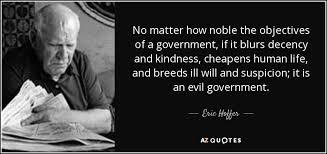 The poor performance of the government at all levels in Nigeria has reduced millions of Nigerians to beggars.
The poor performance of the government at all levels in Nigeria has reduced millions of Nigerians to beggars.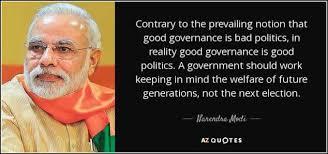
This assertion was made by a former speaker of the legislative assembly of the Ibadan South East Local Government Council, Hon. Tunde Yusuf.
''Visit the communities; people are suffering. People are begging to eat.
The government's poor performance has turned Nigerians into beggars.
Here in Oyo State, the local government does not exist.
Elected officeholders are nowhere to be found.
Hunger is the major discussion at the grass roots, where the illicit drug trade is booming.
At the bus stops everywhere, pick-pocketing is now the trend.'' Hon. Yusuf stated.
-
This is a government of manipulation, exploitation and extortion-Comrade Emelieze
- By solomon2day
- On 19/02/2025
- In Update with Solomon

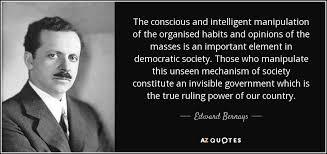 The present administration in Nigeria revolves around manipulation, exploitation and extortion.
The present administration in Nigeria revolves around manipulation, exploitation and extortion.Support Online News Website-New Federation
This assertion was made by the convener of the Federal Workers Forum, Comrade Andrew Emelieze.
'The present government Nigeria is grounded in extortion, exploitation and manipulation. This is leadership by example, go to the markets, market men and women are following the footsteps of those who are a the helm of affairs.There is no end in sight in the ongoing milking of millions of Nigerians by the oppressors. The oppressors have been molded by greed and for-self-only attitude. This is a period of inhuman increases in the costs of goods and services-most especially foodstuff. Comrade Emelieze sated.
The Local Scene
The purchasing power of millions of Nigerians have, all this while, been disabled by the prohibitive prices of goods and services.
Curiously, as Nigerians are busy grappling with the violent crimes in the land, the lawmakers in Edo state have already taken a decision on kidnapping in the state.
Sadly, so many states, where cultism is already part of daily living, are very reluctant to move against the cultists. Why is this so?
Perhaps, this is suspicious, when consideration is given to the saying:''He who pays the piper dictates the tune.''
-
Unfriendly policies driving Nigerians out of business—Comrade Emelieze
- By solomon2day
- On 20/12/2024
- In News
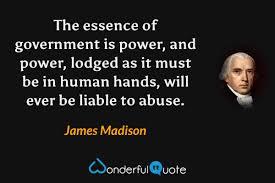 Several businesses in Nigeria have closed shop due to the harsh policies of the government.
Several businesses in Nigeria have closed shop due to the harsh policies of the government.This assertion was made by the spokesperson of the Federal Workers Forum, Comrade Andrew Emelieze.
''So many businesses are no longer finding it difficult to cope with the unfriendly policies of the government but are now finding it extremely impossible to stay afloat, and the only option open to them is to close shop. The general costs of doing business in Nigeria have gone beyond the reach of millions of Nigerians. Businesses have continued to collapse, while those in government are still giving empty assurances,'' Comrade Emelieze stated.
-
Time as Nemesis
- By solomon2day
- On 07/12/2024
- In Update with Solomon

 It is disheartening to come to terms with the fact that intimidation, threats, attacks, and manipulation are now tools of governance at all levels of government. Very strange and laughable.
It is disheartening to come to terms with the fact that intimidation, threats, attacks, and manipulation are now tools of governance at all levels of government. Very strange and laughable. Leadership has been redefined to include deceit, manipulation, and lies, among other things.
-
Partner with Us- President Tinubu to ASUU and other unions
- By solomon2day
- On 18/11/2024
- In News

 President Ahmed Tinubu has called on labor unions in universities in Nigeria to partner with his administration to fashion out a way out of their funding problems.
President Ahmed Tinubu has called on labor unions in universities in Nigeria to partner with his administration to fashion out a way out of their funding problems.President Tinubu, who is the visitor to the University of Ibadan, made this call on Monday at the 76th Foundation Day and 2024 Convocation Ceremonies of the University in Ibadan, Nigeria.
The president, who was represented by the Minister of State of Education, Hadjia Suwaiba Ahmad, also lamented that his administration ''inherited an economy that was struggling to stay afloat across all sectors. We have, however, managed to salvage the country from imminent bankruptcy.''
''I submit that unions should partner with the government to arrive at a funding blueprint for the university system in the country that will take cognizance of local peculiarities and modern realities based on global best practices.''
''Indeed, the incessant industrial actions by the Academic Staff Union of Universities (ASUU) and other unions in the university system always revolve around the issue of adequate funding. I fully understand the situation of the university system in the country and the efforts taken by the unions to draw governmental and public attention to the need for more funding of the system.''
In his address, the Chancellor of the university and the Sultan of Sokoto, His Eminence, Alhaji Muhammadu Sa'Ad Abubakar, appealed to the Federal Government to increase its funding of higher education in the country, saying, ''Permit me to use this medium to appeal to the government to do more in the provision of adequate and proper funding of tertiary institutions.''
''We are not unaware of the dwindling state of the economies of nations, world over. However, we are optimistic that prioritizing education will raise the standard of the output of our institutions and thereby address some of the ills bedevilling our society.''
-
UCH cannot pay prohibitive electricity tarriffs-Health Workers
- By solomon2day
- On 12/11/2024
- In News

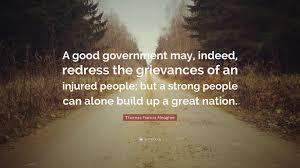 Health workers in the University College Hospital (UCH) in Ibadan, Nigeria, have declared that the internally generated revenue of the hospital is insufficient to cater for the monthly astronomical electricity bills brought by the officials of the Ibadan Eelectricity Distribution Company (IBEDC).
Health workers in the University College Hospital (UCH) in Ibadan, Nigeria, have declared that the internally generated revenue of the hospital is insufficient to cater for the monthly astronomical electricity bills brought by the officials of the Ibadan Eelectricity Distribution Company (IBEDC).The health workers who made this declaration on Tuesday, through the chairman of the Non-Academic Staff Union and Associated Institutions (NASU), Comrade Kehinde Abiona, appealed to the Federal Government to rechannel the gains of the subsidy removal to fund the health sector's challenges.
''Management cannot pay the prohibitive tariffs; even before the increment, the hospital had been grappling to cope with the increasing costs of administration. It is just like a patient that is struggling to survive and the oxygen line is suddnely removed.''
''The Federal Government should rechannel the subsidy it removed on petrol to the power sector. The government should subsidize power consumption. It promised to subsidize electricity in teaching hospitals, but surprisingly this promise has no seen the light of the day.'' Comrade Abiona stated.
He called on well meaning Nigerians to prevail on the government to do the necessary for teaching hospitals in the country, saying''everyone is a potential patient, we should all be concenred about how the hospitals are run.''
-
Ibadan residents at the mercy of cultists
- By solomon2day
- On 04/11/2024
- In News

 Cultists have, for over 5 years running now, taken over most of the communities of Ibadan, the capital of Oyo State.
Cultists have, for over 5 years running now, taken over most of the communities of Ibadan, the capital of Oyo State.Trump sues CBS over Harris '60 Minutes' interview
These cultists, who operate with impunity, boast of their untouchable status openly, to the consternation of members of the public.
Their presence in the midst of unscrupulous law enforcement agents has not helped matters.
Indeed, residents have decided to keep quiet when all their complaints have never attracted any uplifting response from those in charge.
Of great worry is the nonchalance of the state government and the state legislature towards breathing constitutional and statutory life into the anti-cultism law in the state.
The cultists have, for long, broken into the houses of residents and forcefully made away with property documents.
On Monday, at about 7.40 am in the morning, cultists led by one Lekan Adewale made a failed attempt to break into an apartment at 3, Kehinde Aderibigbe Street, Olorunsogo, Molete.
Sadly, occupants of No. 5 (a two-story building) served as accomplices.
The leader of the cultists operates from No. 8 Kehinde Aderibgbe Street, Olorunsogo, Molete.
For long, the cultists have been forcefully evicting residents from their landed property and disposing of such property with the aid of erring law enforcement agents and government officials.
-
The Food Question
- By solomon2day
- On 28/10/2024
- In Update with Solomon

 Nigerians are proud to live in a country with a land area of 923,773 km2, with varied vegetation and types of soil suitable for various agricultural purposes.
Nigerians are proud to live in a country with a land area of 923,773 km2, with varied vegetation and types of soil suitable for various agricultural purposes.In 1960 and the years following, up until the early 1970s, Nigeria's economy was between the agriculturally friendly ''grassroots'' and the ''white collar'' city-oriented center.
All that had to do with the production of goods was concentrated in the city, while a large percentage of Nigerians resided in the villages, with farming as their major occupation.
The villages, then, lacked major amenities of life.
Governance during this period was with a chain of challenges.
Then, most of the earnings from exports were from agriculture, while 65% of Gross Domestic Product (GDP) also came from the sector.
Nearly 50% of government revenue in 1960 could be traced to agriculture.
Today, as in the 1960s, the provision of quantitative and qualitative education, quality health care delivery, and the absence of social and economic infrastructure are just a few of the long list of challenges that confront the government.
In 1973, when crude oil emerged as the mainstay of the economy, the government took a ''nap'', having noticed the 'light at the end of the tunnel.'.
That 'nap' was at great cost, as can be seen in the unfolding events of the present time.
In 1980, crude oil constituted 81.1% of government revenue and 96.1% of export earnings.
Indeed, the growth of the economy was tied to projected earnings from crude oil exports; this was despite the fact that signs had begun to manifest on the imminent collapse of crude oil prices in the international market.
With fiscal and current account deficits occasioned by unstable crude oil prices, resulting in internal and external imbalance, and the state governments contending with monetary challenges, Nigerians insist that those who are at the helm of affairs at all levels, presently, know little or nothing about governance.
The cries of hunger and poverty has now become the chorus on the lips of millions of Nigerians.
Their only hope lies in the newly elected political office holders in the new dispensation. Shall they be able to deliver the dividends of democracy? Time will tell.
-
Government Attitude and Workers' Devotion to Duty
- By solomon2day
- On 16/10/2024
- In Update with Solomon
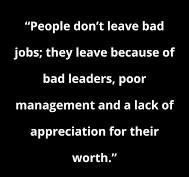
 At the present time, in Nigeria, only a handful of civil and public servants take their duties seriously and wholeheartedly.
At the present time, in Nigeria, only a handful of civil and public servants take their duties seriously and wholeheartedly.Their attitude is directly related to the position of government in the three tiers on issues of workers' welfare and conditions of service.
Indeed, the focus of those on government payroll in any given line of duty or assignment is what is in it to gain and not what ought to be done. In other words, selfless devotion to duty is no longer there.
Assigned tasks in the Ministries, Departments and Agencies are no longer done properly and promptly. A sizable number of workers no longer possess a sense of responsibility. Who is to blame ?
For several years now, the monster of indiscipline has continued to fester, with due process as the major casualty. The struggle for ''power'' among government workers is the most prominent activity going on in most offices.
Sharp practices are the order of the day. This is partly as a result of the sectional democracy in vogue today.
At the federal, state and local government levels, workers, who are co-opted to generate revenue for the government, make good use of the opportunity to protect their future.
The source of inspiration for this category of workers includes stories of government workers who retired in 2010 and are yet to be paid their gratuities.
Workers ought to be devoted and committed to duty, to avoid negative reports from their superiors.
The worrisome question everywhere at present is : has the insensitive attitude of government ensured workers' devotion and commitment to duty ?
A Disturbing Community Leadership
For a while now, the chairman of the Molusi street, Molete, Ibadan, Oyo state Landlords and Tenants Association, one Akeem, alongside Indian Hemp smoking hoodlums, who operate from the unfenced IMG Schools 1 and 2 Ibuko, Molete, Ibadan, attacked and dispossessed innocent residents of their valuables.
Just on Tuesday, at about 6.15pm, the chairman alongside his boys, attacked and dispossessed a resident of his personal belongings a few metres from the primary school, along the road.
Similarly, a police rank and file serving with the Oyo state Police Command, has for long operated a brothel, where questionable characters hibernate. The brothel located along Oyegbami street, Olorunsogo, Molete, has been a subject of worry for the residents in the community, considering the status of the owner.
-
The Mao Zedong Model
- By solomon2day
- On 08/10/2024
- In Update with Solomon
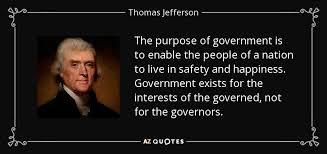
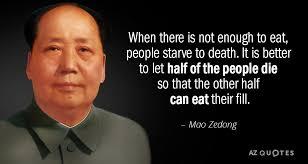 Mao Zedong, popularly known as Chairman Mao, was successful with his noble goals for China through despotic means.
Mao Zedong, popularly known as Chairman Mao, was successful with his noble goals for China through despotic means.His leadership was severe, dictatorial and personalized.
For as long as Chairman Mao's Cultural Revolution lasted, thousands of Chinese died of starvation and inhuman labor.
Mao and his co-travelers argued that the same was the price their people had to pay for re-education.
This brand of governance ensured the extermination of the heroes of the civil war and the old party chieftains by the President's armed squad.
Chairman Mao is perhaps the role model of those who hold sway in Nigeria today.
Indeed, the Kaduna state Governor, Mallam Nasir El Rufai is among several other political office holders, who adore President Muhammadu Buhari.
Those in support of this argument insist that on a number of occasions, the Kaduna state Governor knelt down to greet and/or consult with the President. They maintain that this is only a sign of respect in the traditional African setting.
However, those against this order of things, stress that the underlying factors revolve around hypocrisy and boot licking.
Nigerians are yet to stop complaining of constitutional breaches and the unabated trampling of the rule of law in the dust, without noticeable changes by the powers that be.
From recent events in the country, the economic reform programs of the All Progressives Congress(APC) led government at the center and in the states, are modeled along the thinking of a free market economy.
It is doubtful if the government, in most recent times, has managed the economy for the benefit of Nigerians.
Of worry is the state of manufacturing industries, which could be said to be epileptic, even as food security is a mirage, insecurity is the chorus everywhere, while crude oil remains the major hope of the present administration.
Interestingly, the future growth of the Nigerian economy rests comfortably on diversification and focus on visionary and creative people-friendly economic policies, although the government still over-relies and over-depends on crude oil to fund its programs.
Can the present administration turn around the troubled economy ? Nobody knows.
-
The People lament
- By solomon2day
- On 28/09/2024
- In Update with Solomon

 Millions of Nigerians are complaining that hunger and poverty have taken root nationwide.
Millions of Nigerians are complaining that hunger and poverty have taken root nationwide. The insecurity in the land has disabled the productivity of farmers in different parts of the country, while political office holders have been overwhelmed by their pecuniary and self-centered interests.
State actors insist that millions of farmers have benefited from the agricultural subsidies of the government, but the prohibitive cost of food items punctures this claim. For a considerable period of time now, the import of agricultural products has far outweighed exports, confirming the insinuation that state actors are insincere and about the true situation of things in the agricultural sector.
-
Lessons in Insecurity : The Nigeria Model
- By solomon2day
- On 04/09/2024
- In Update with Solomon

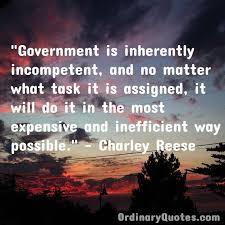 Adolf Hitler labeled the extermination of the Jews in Europe,''the Final Solution'', while the military dictatorship in Argentina, which embarked on an unprecedented killing of its citizens, code named the same ''The Process of National Reorganization''.
Adolf Hitler labeled the extermination of the Jews in Europe,''the Final Solution'', while the military dictatorship in Argentina, which embarked on an unprecedented killing of its citizens, code named the same ''The Process of National Reorganization''.The activities of bandits, insurgents and herdsmen in Nigeria which have claimed thousands of lives are similar to the above-mentioned.
Between 1976 and 1983, millions of citizens lost their lives in Argentina.
Death squads operating under secret circumstances and under the cover of the state, murdered about 11,000 people, which is now described as ''The Disappeared''.
Two million people escaped persecution, while hundreds of babies born to ''The Disappeared'' were either sold, bartered or murdered.
Indeed, happenings in different states of Nigeria, including, Borno, Benue, Taraba and Plateau and Zamfafra states, among several others, indicate the Government's adequate knowledge of the situation, while unabated killings go on.
The relocation of the Inspector General of Police to Benue state, one of the troubled spots then, did not reverse the status quo.
On March 23, 1976, General Jourge Videla, Head of the Argentine Army, overthrew the Government of Isabelita Peron, a former nightclub dancer. In this country, no civilian government has completed its tenure, except for Juan Peron, who spent only one tenure in office.
However, in Nigeria, a two term governor of Lagos state, is in charge, even though the country still experiences symptoms of economic hunger, poverty, mass unemployment, corruption and a high level of insecurity.
The Ejercito Revolucionario de Pueblo and the Montoneros, leftists, took to kidnapping and killings to express their displeasure over bad governance in Argentina. In Nigeria, kidnappings and killings have gone on unabated. Political watchers put the blame at the doorstep of government.
Presently, Nigerians are worried over the government's inaction, as the country gradually slides into anarchy.
Sadly, the open stealing of smart phones has become bibg business in Ibadan, Oyo state and other states of the federation
Accusing fingers are being pointed at political office holders who have failed to deliver the dividends of democracy.
Interestingly, the body language of the National Assembly, is an indication that the lawmakers are yet to realize the need for the entrenchment of the rule of law and due process in the polity, just as impunity is now the order of the day
In 2009, the Defense Minister of Madagascar, Cecile Manorohanta, resigned her appointment on the grounds that she would not be part of a government that kills its citizens.
Also, the people of Madagascar vigorously opposed the attempts by President Marc Ravalomanana to lease one million acres of their land to a Korean firm, Daewoo, for intensive farming.
The people have deep ties with their land and, as a result, view the President's action as a betrayal.
The same scenario is playing out in Nigeria.
The insecurity in the land has made foreign investment impossible, while the disenfranchised and poor majority look into the gloomy future for reprieve.
-
In the Interest of Digital Literacy
- By solomon2day
- On 23/08/2024
- In Update with Solomon
 In Nigeria, millions of citizens, most especially the poor and vulnerable, remain without internet access.
In Nigeria, millions of citizens, most especially the poor and vulnerable, remain without internet access. For a long time, internet users have had to put up with very substandard services.
This is as a result of inefficiency and inadequate infrastructure.
Sadly, most of those who are fortunate to have internet access use it negatively.
Indeed, digital literacy is a major challenge across the country and this has translated to limited internet use in most sectors of the economy.
Youths have taken to crime due to the attitude of the leadership at all levels of government, while pornographic content has exposed minors to immoral acts.
Of worry, is the lack of funding for research and infrastructure for Information and Communication Technology(ICT) by today's leadership.
The Backbone
The Nigerian youth involved in crime is not acting alone, some of those in positions of authority are his or her backbone.
This becomes glaring when an individual takes a keen interest in unfolding events.
-
The Perpetual Absence of Visionary Leadership
- By solomon2day
- On 19/08/2024
- In Update with Solomon
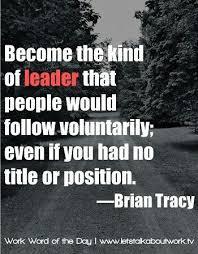
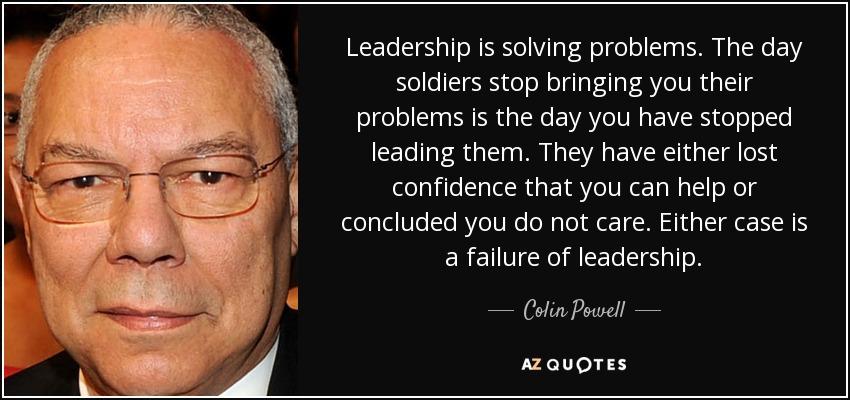 The improvement in the system of transportation, to a very great measure, increases the physical extent and economic size of a country.
The improvement in the system of transportation, to a very great measure, increases the physical extent and economic size of a country.However, in the Nigerian context, a number of factors have negatively affected the transport system and this has resulted in an astronomical rise in the prices of goods and services beyond the reach of a majority of the population.
The prohibitive transportation costs coupled with the multiple taxation across the country and the unabating insecurity have all succeeded in ensuring that Nigerians remain in a perpetual state of hunger and poverty.
Curiously, levels of government have channeled generated revenue from multiple taxes, unproductively, to real estate, while Nigerians continue to daily count their landed property losses.
Indeed, the government at all levels have always contended with inadequate financial organization and the relevant knowledge.
Sadly, economic stagnation is now a major characteristic in most cities that are contending with overpopulation. Petty trading and individual investments in consumables have become the preference of the people, in the absence of proactive, visionary leadership.
-
Calming Frayed Nerves
- By solomon2day
- On 15/08/2024
- In Update with Solomon
 The burden of a nation is too multi-dimensional for a single power broker to manage.
The burden of a nation is too multi-dimensional for a single power broker to manage.There are entrenched interests in the military, security services, a section of the judiciary and also the bureaucracy, while the population at large remains distraught and impoverished.
Indeed, to inherit a badly managed and shattered economy is disturbing to those who know what is in stock aside from the high level of insecurity.
Those-in-Charge need not feign ignorance about the pressing issues at stake, but go all out to tackle the issues, even as reservations, doubts and suspicions grow among the populace by the day.
The Situation
It is now very glaring that millions of Nigerians-outside the workforce- are contending with hunger, poverty, unemployment and a number of other hardships.
This has resulted into a sizable number the citizens embracing crime as a means to an end.
Those -in-charge are only scratching the surface while the situation deteriorates daily.
-
Living with Evil
- By solomon2day
- On 11/08/2024
- In Update with Solomon
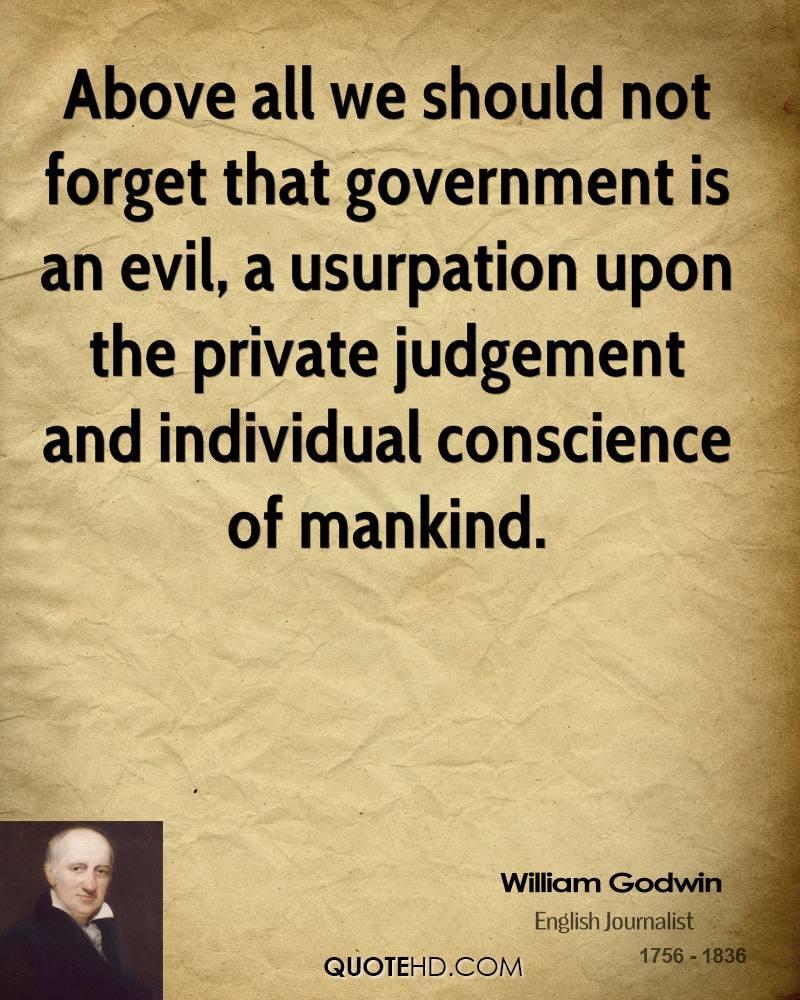 The evil deeds of some state governors are limiting factors when they involve interfacing with law enforcement agencies.
The evil deeds of some state governors are limiting factors when they involve interfacing with law enforcement agencies.Indeed, the situation has become so bad to the extent that the people no longer trust political office holders to guarantee the safety of lives and property.
Sadly, a number of state governors are very reluctant to move against cultists who have continued to wreak havoc in the affected states.
Interaction is preferably by representation, because a lot is still hidden, that is gradually coming to light.
Indeed, the evil that men do lives with them and has become their shadows.
No responsible law-abiding and right-thinking Nigerian will subscribe to calls by some individuals to cooperate with criminals. Perhaps -
Good Governance
- By solomon2day
- On 10/08/2024
- In Update with Solomon
 It is to the knowledge of millions of Nigerians that the basic social-economic institutions have been destroyed.
It is to the knowledge of millions of Nigerians that the basic social-economic institutions have been destroyed.The challenge now is how to fix the nation's health, education, judiciary and other institutions or ensure a satisfactory turn around.
In developed countries, economic activities are the backbone of politics and, as such, distortions or reversal of economic policies or long-term strategic national objectives are rare.
Sadly, little or nothing has been achieved to guarantee a good economic foundation, which ought to be the back-rest of politics.
This is reflected in the awkward power-sharing, power rotation and inequitable distribution of resources and good governance.
The kind of economic reforms by the government would go a long way in determining if Those-in-Charge are neophytes in the Herculean task of governance.
Aiding and Abetting Criminals
For so long, cultists such as one Wolex and Lekan Adewale of 8 Kehinde Aderibigbe steet, Olorunsogo, Molete, Ibadan, Oyo state, Nigeria, have been terrorizing, robbing and attacking innocent Nigerians in the above-mentioned community and so many others. Although the law enforcement agencies feign ignorance, the confidence exuded by the criminals, who have continued to commit heinous and grievous crimes with impunity, exposes the deep involvement of the police in violent crimes, not only in Oyo state but in different parts of the country.
-
Hunger Protests-Watch out for Criminals-Onyendu to Security Agencies.
- By solomon2day
- On 31/07/2024
- In News
 The Onyendu Ndigbo of Ibadan and Oyo state High Chief Alloy Obi has warned against the hijack of the impending nationwide protests against hunger and bad governance by criminals.
The Onyendu Ndigbo of Ibadan and Oyo state High Chief Alloy Obi has warned against the hijack of the impending nationwide protests against hunger and bad governance by criminals.Chief Obi gave this warning on Wednesday in a chat with The New Federation.
''We are in a democracy, Nigerians are free to protest. However, the security agencies should not allow criminals to hijack protests against hunger, poverty and bad governance. It is high time government at all levels cut down th costs of governance. Millions of Nigerians are finding it difficult to feed themselves, even once a day. All those in public office should sit down and find solutions to the multiple problems confronting th country. When the center is weak and all regions manage their resources, then we will get it right,'' High Chief Obi stated.
-
Wishes and Expectations
- By solomon2day
- On 27/07/2024
- In Update with Solomon
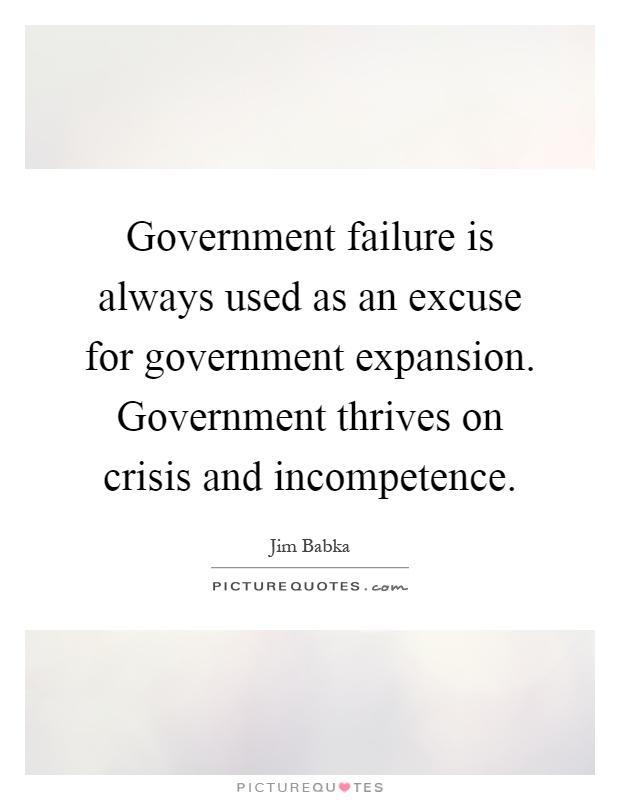 The key elements of tyranny include, but are not limited to, insensitivity, brutality, random arrests, incarceration and unresolved cases of killings.
The key elements of tyranny include, but are not limited to, insensitivity, brutality, random arrests, incarceration and unresolved cases of killings.Curiously, the prohibitive price of the Premium Motor Spirit(PMS) is already having multiple negative effects on the economy, even as Nigerians persist in their daily lamentations of the unbearable hardships that have been their lot in recent times.
Indeed, governance on the platform of deformed democratic institutions attracts tyranny, which is not in tandem with the wishes and expectations of Nigerians.
Interestingly, the people are yet to identify any conceivable reason for the policy direction of Those-in-Charge towards the worrisome and disturbing situation that called for urgent deliverance.
The cost of living is on the rise on a daily basis and Those-in-Charge continue to appeal and cajole citizens to take their sufferings as sacrifices that must be made for the anti-people policies that are ravaging the land.
Self Preservation in the Midst of Evil
These are very dangerous times in so many states in Nigeria, which have, long before now, become the Biblical Sodom and Gomorrah.
Indeed, the overlords in the states have succeeded in remodeling their domains into havens of all that defies morality and decency.
Of worry is the increase in the cases of death revolving around drink and food poisoning, in addition to sexually transmitted diseases. All the afore mentioned are weapons of destruction by those obsessed with temporal power.
Curiously, the services of migrants from other states are engaged to carry out the unthinkable and unbelievable. The only option now open to Nigerians is to adopt measures that would ensure self-preservation in the midst of evil by Those-in-Charge.

 Donate
Donate